Top 10 Reasons Why Chicago needs an Elected School Board | 10.8.15
Early voting has started for the February election! Voters in 37 wards will have the chance to weigh in on whether Chicago should have an elected school board. If you live in one of the following wards, you will be able to vote on this: Wards 1, 3-8, 10, 12, 14-17, 19-22, 24-37, 40, 45-47, 49, 50.
While this is a non-binding referendum, it will help to gauge public support for this measure in a very broad cross-section of the city. The law would have to be changed in Springfield to actually move to an elected board.
Here are our top 10 reasons why Chicago needs an elected school board that is representative of Chicago communities (ERSB). And while we don’t think an ERSB would be a panacea, without one we will continue with the same policies we’ve seen.
Chicago’s neighborhoods need representation. The appointed board has weakened our neighborhood schools over the past 4 years. Millions have been cut from district school budgets and 54 neighborhood schools have been closed or phased-out since 2012. Neighborhood high schools have lost 12% and 10% of their budgets over the past two years under this administration. Catalyst article
No taxation without representation. The appointed board levies property taxes; no elected official, not even the mayor, can veto the decision. The mayor is checked by the aldermen and the governor is checked by the legislators, but no elected official checks the unelected school board.
The appointed board system is racially discriminatory. More than 1/3 of Hispanic students in Illinois and almost ½ of African-American students attend public school in a district without an elected school board (36 and 44%, respectively). Nearly half (47%) of the state’s African-American residents cannot elect their school board, but only 13.3% of white residents cannot. The lack of an elected board disproportionately disenfranchises voters of color.
Parent voices are stifled. The appointed board’s pro-privatization agenda has cut district schools over parent protests while CPS opened 21,251 seats over the past three years, mostly in privately-run charter, contract and alternative schools that lack elected local school councils. The school operators are not subject to open-meeting or freedom of information laws. Privatization has extended to the custodial contract leaving our schools across Chicago much dirtier. Principals in CPS can often be found with mops in hand these days.
Chicago residents are treated unfairly. No other district in IL has an appointed board by law; why should we? 94% of school boards around the country are elected. Of the ten largest school districts in the country, only three, including Chicago, have appointed boards.
Financial mismanagement. Debt service has skyrocketed, no bid-contracts are common, money is lost on toxic interest-rate swaps & risky bonds, and TIF reforms are ignored. CPS tripled its capital budget in 2013 to $363.7 million to help pay for upgrades to buildings. Only 52% percent of kids ended up in “welcoming” schools according to the Chicago Tribune. Operating costs for closings equalled $263 million according to a report by the Chicago Educational Facilities Task force. Trib Article
End rubber stamp voting. The appointed board rarely debates any policy resolution or votes other than unanimously. The appointees ask few or often no questions of CPS officials even on major policy changes.
Evidenced-based policies have been ignored. This Board has not addressed reforms that actually have been shown to work such as reducing class size. From our research, 34.5% of students in K-2 are in classrooms at or above 29 students. The board upholds high-stakes testing policies that rank, sort and punish schools instead of supporting them. There is less time for professional development for teachers under the new 7-hour day, and mandates for a broader curriculum have mainly been unfunded.
Fewer kids enrolled in Pre-K. The city changed the process to enroll in Pre-K in 2013 making it more difficult for parents and families to enroll. The centralized process has led to 3% fewer students enrolled in Pre-K in Chicago. Catalyst
Rampant conflicts of interest. Whether it’s members of the Board who have managed companies like AUSL or board members having ownership in companies that are profiting off our schools, the ethics policy for the appointed board is more lax than that of elected school boards or Local School Councils.
